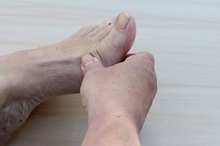Burning Scalp Syndrome
Burning scalp syndrome is scientifically known as trichodynia or scalp dysethesia 1. It commonly affects people suffering from hair loss conditions, like androgenetic alopecia and telegon effluvium. Burning scalp syndrome is characterized by painful burning sensations in the scalp and around the roots of hair 1. Although a clinical cause has not been determined, scientists believe that “substance P,” a neuropeptide made by nerve cells, may be to blame. Burning scalp syndrome can be incredibly painful, and while there is no perfected cure, dermatologists have had success treating the condition with antidepressants 1.
Symptoms
People suffering from burning scalp syndrome complain of burning, itching and stinging of the scalp 1. These symptoms are often triggered or made worse by physical or psychological stress. Trichodynia, unlike scalp dysethesia, is also characterized by painful sensations in the hair itself, which become more intense when the hair is touched.
Occurrence
Does Vitamin B-12 Cause OCD to Be Worse?
Learn More
According to "Clinical Management in Psychodermatology," 34 percent of people suffering from chronic hair loss syndromes experience burning scalp syndrome 1. The pain occurs with no physical pathological findings, and is thought to be a somatoform disorder. Somatoform disorders are psychological disorders in which physical symptoms appear or are felt with no predictable or understandable medical cause.
Cause
According to keratin.com, doctors do not precisely understand the cause of burning scalp disorder 1. However, research has shown that neuropeptides in the skin and hair follicles may be involved. Substance P fluctuates in amount as hair follicles grow and die. It has been shown to create sensations of pain, and is thought to become more prevalent as hair follicles die. Another explanation for burning scalp disorder is that cell activity caused by androgenetic alopecia or telegon effluvium produces inflammation, which results in pain 1. There could also be underlying psychological problems that cause the disorder.
Psychology
B-12 & Urticaria
Learn More
According to "Clinical Management in Psychodermatology," just over three-fourths of patients with burning scalp syndrome also have psychiatric disorders, such as depression, anxiety disorders or obsessive-compulsive disorders 1. Burning scalp syndrome has also been linked to fear of hair loss, and this fear may produce painful sensations in the scalp 1.
Treatment
According to keratin.com, burning scalp syndrome is sometimes treated with tricyclic antidepressants 1. While usually taken to relieve depression, tricyclic antidepressants have been proven to help reduce levels of substance P. It is thought that reduction of substance P levels will help ease sensations of pain. Other treatments for burning scalp syndrome include corticosteroids, capsaicin, anesthetic agents and gentle shampooing 1.
Related Articles
References
- Harth, Wolfgag and Gieler, Uwe. Clinical Management in Psychodermatology. Springer-Verlag, Berlin: 2009.
- Ranganathan S, Mukhopadhyay T. Dandruff: the most commercially exploited skin disease. Indian J Dermatol. 2010;55(2):130-4. doi:10.4103/0019-5154.62734
- Gavazzoni dias MF. Hair cosmetics: an overview. Int J Trichology. 2015;7(1):2-15. doi:10.4103/0974-7753.153450
- Datta HS, Mitra SK, Paramesh R, Patwardhan B. Theories and management of aging: modern and ayurveda perspectives. Evid Based Complement Alternat Med. 2011;2011:528527. doi:10.1093/ecam/nep005
- Carson CF, Hammer KA, Riley TV. Melaleuca alternifolia (Tea Tree) oil: a review of antimicrobial and other medicinal properties. Clin Microbiol Rev. 2006;19(1):50-62. doi:10.1128/CMR.19.1.50-62.2006
- Satchell AC, Saurajen A, Bell C, Barnetson RS. Treatment of dandruff with 5% tea tree oil shampoo. J Am Acad Dermatol. 2002;47(6):852-5. doi:10.1067/mjd.2002.122734
- Huang TH, Wang PW, Yang SC, Chou WL, Fang JY. Cosmetic and therapeutic applications of fish oil's fatty acids on the skin. Mar Drugs. 2018;16(8). doi:10.3390/md16080256
- Piccardi N1, Manissier P. "Nutrition and nutritional supplementation: Impact on skin health and beauty." Dermatoendocrinol. 2009 Sep;1(5):271-4.
Writer Bio
Charlotte Mission is an avid reader and writer. She has written professionally for over 5 years and for pleasure for many more. Her work has appeared on eHow.com and AssociatedContent.com. She is currently pursuing a degree in History.









